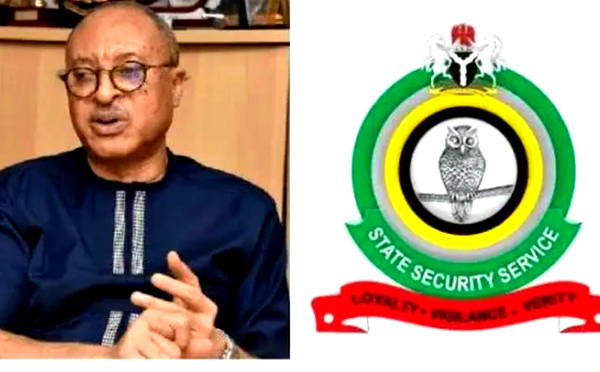The Federal High Court in Abuja has ruled against Prof. Pat Utomi’s plan to establish a “shadow government,” deeming it unconstitutional and void. Delivering judgment on September 29, 2025, in a suit filed by the Department of State Services (DSS), Justice James Omotosho stated that the concept of a shadow government is alien to Nigeria’s presidential system and lacks constitutional backing.

Citing Section 1(1) and (2) of the 1999 Constitution, the judge emphasized the supremacy of the constitution, which does not permit a parallel or shadow government. “Any participation in a government unknown to law will be struck down,” Omotosho declared, affirming the court’s jurisdiction to hear the case.
Background of the Case
On May 5, 2025, Utomi launched his shadow government initiative under the Big Tent Coalition, positioning it as an opposition platform to provide policy alternatives to President Bola Ahmed Tinubu’s administration. However, on May 14, the DSS filed a suit (FHC/ABJ/CS/937/2025) at the Federal High Court, arguing that the initiative usurped executive authority and was illegal.

Despite the legal challenge, Utomi proceeded in July, announcing members of his shadow cabinet. The federal government, through Minister of Information Mohammed Idris, condemned the move, stating that shadow governments are not recognized in Nigeria’s legal framework and that opposition must remain within “the bounds of propriety.” The DSS further warned that the initiative risked inciting unrest akin to the 2020 #EndSARS protests.

Utomi countered with a preliminary objection on June 24, arguing that the DSS lacked a valid cause of action under the National Security Agencies Act. He defended the shadow cabinet as an exercise of his constitutional rights to freedom of expression, association, and political participation under Sections 39 and 40 of the 1999 Constitution.
Court Proceedings and Ruling
Recognizing the case’s complexity, Justice Omotosho invited seven senior lawyers as amici curiae during a July 10 hearing. Their submissions were divided, with some supporting the DSS’s position and others viewing Utomi’s initiative as legitimate civic engagement. The judge reserved judgment until September 29.
In his ruling, Omotosho acknowledged Utomi’s fundamental rights but stressed that these are not absolute and must align with constitutional limits. He concluded that establishing a shadow government exceeds those boundaries and poses a risk of societal disruption.




